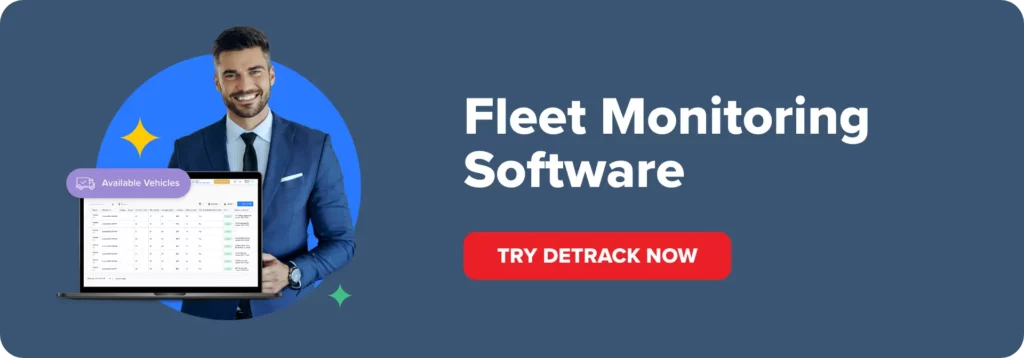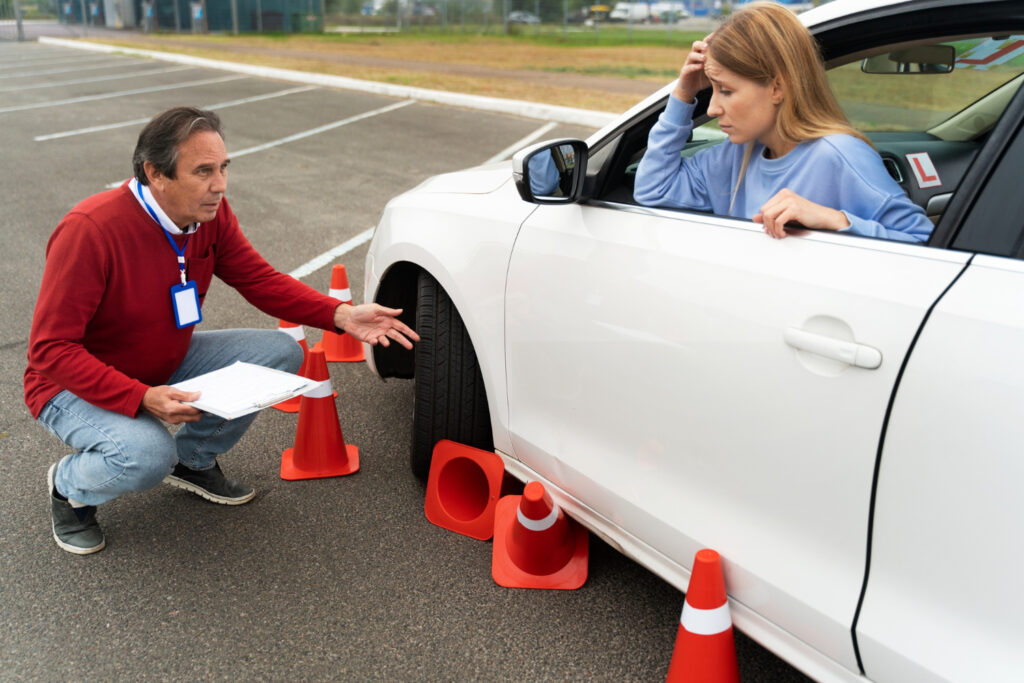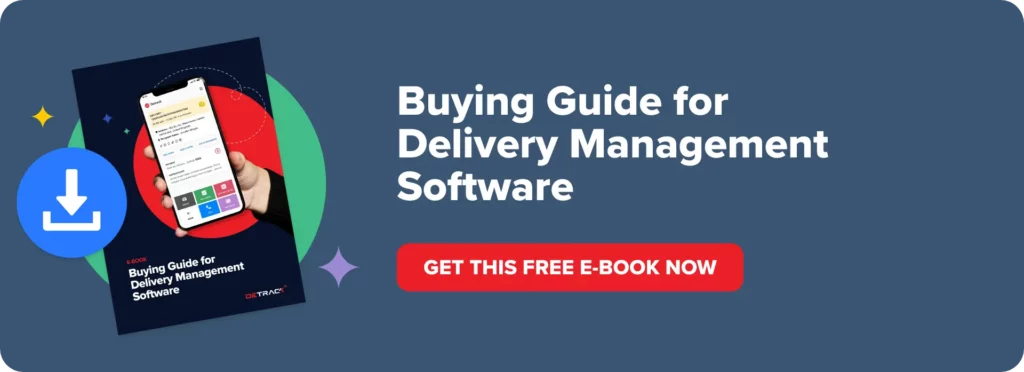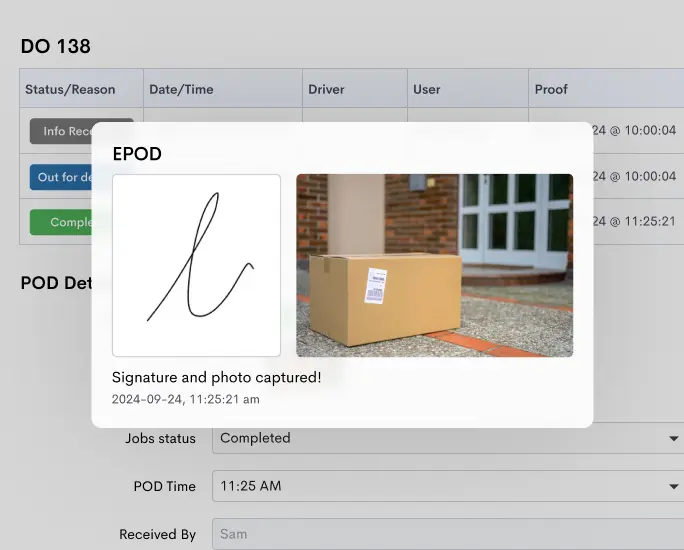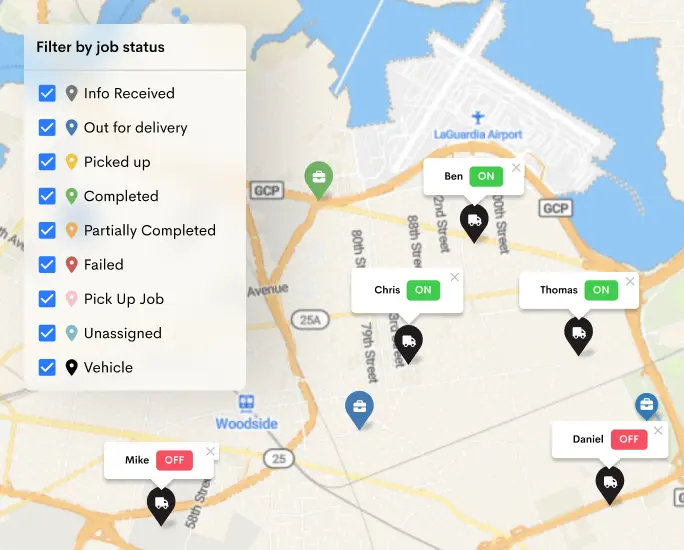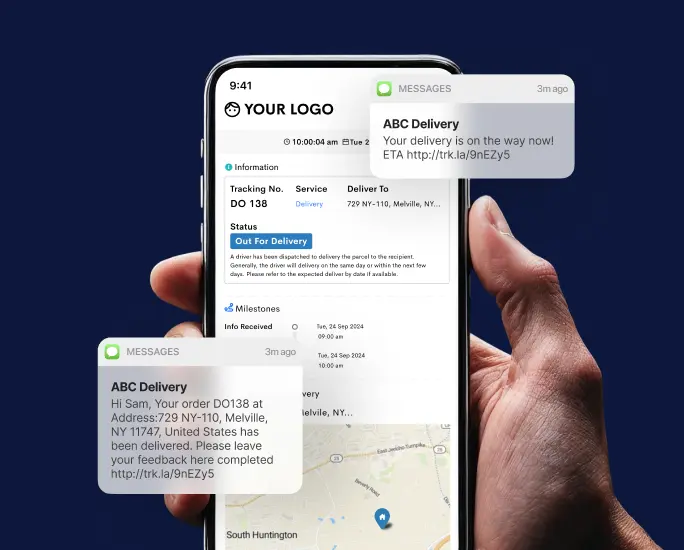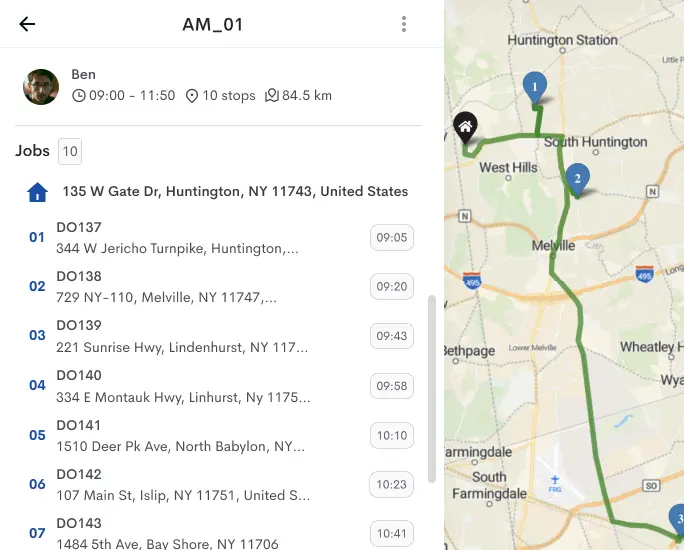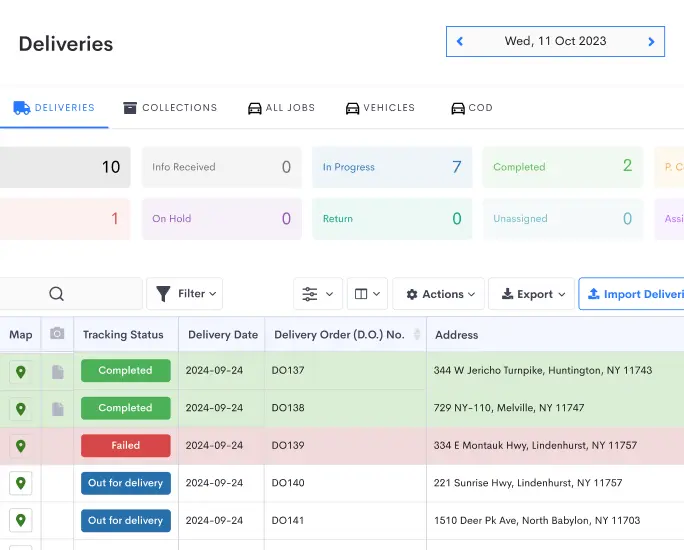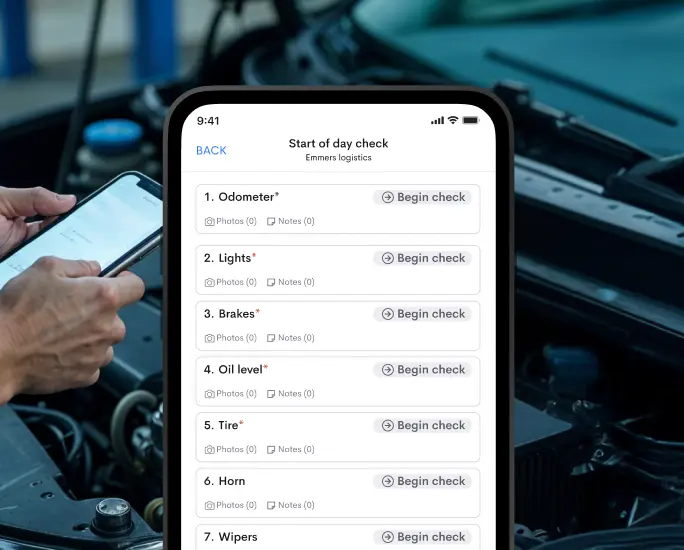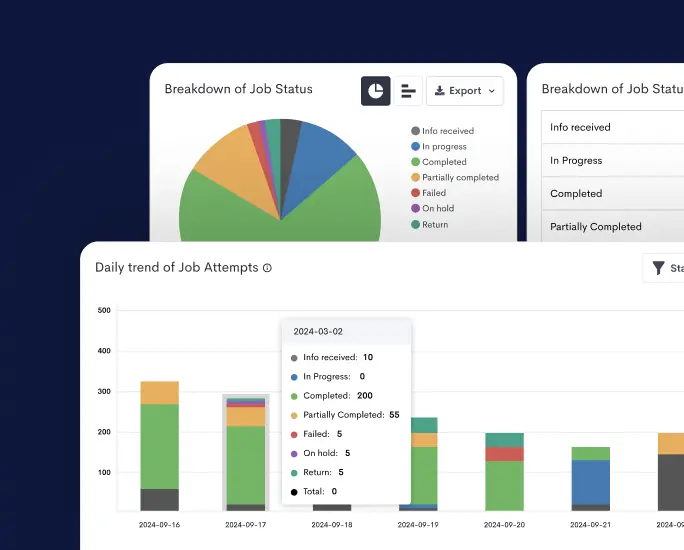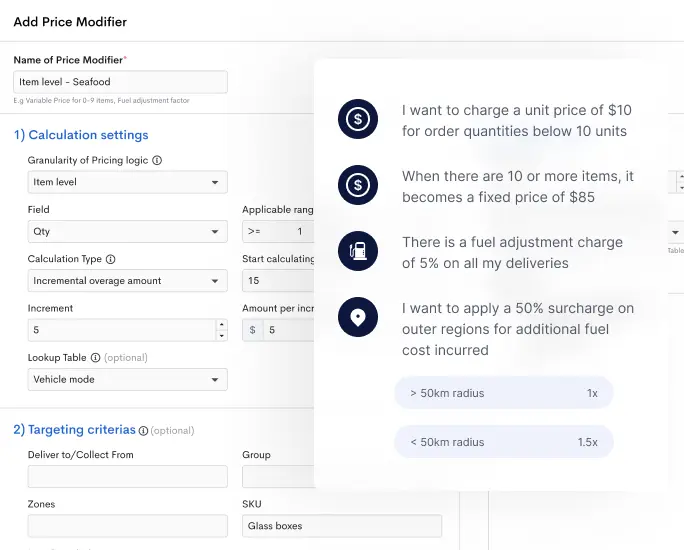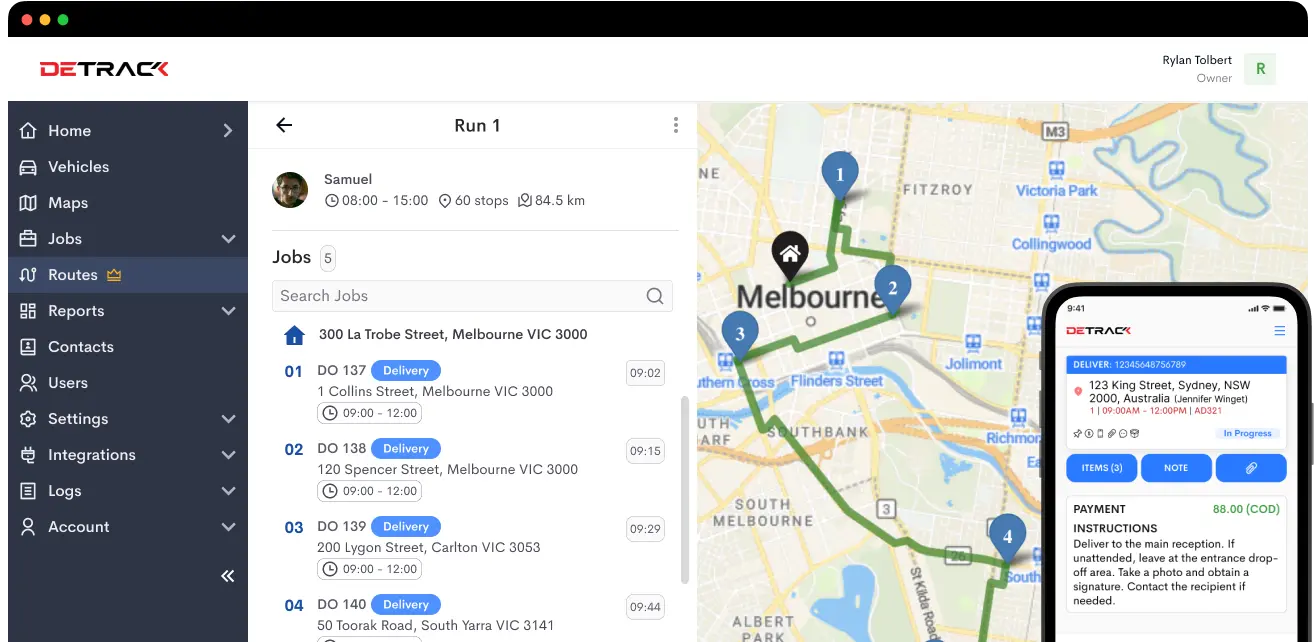Driver compliance is more than a regulatory checkbox—it’s the cornerstone of safety and operational efficiency. As industries evolve amidst technological shifts and regulatory updates, the need for effective driver compliance management has never been more crucial.
In this blog, we will go through the intricacies of driver compliance, exploring best practices organizations can adopt to streamline their processes, mitigate risks, and promote a safety culture.
Keep Your Fleet in Line with Detrack
Detrack’s cutting-edge technology turns compliance from a challenge into an accomplishment, ensuring your drivers are always road-ready
What is driver compliance?
Driver compliance refers to the adherence of drivers to various legal, safety, and operational standards set by regulatory authorities. It encompasses a range of factors to ensure that drivers operate vehicles safely and lawfully. Some key aspects of driver compliance include:
- Licensing: Drivers must possess the appropriate and valid licenses for the type of vehicle they operate. This ensures they have the necessary skills and knowledge to handle the vehicle.
- Health Requirements: Drivers are often required to meet certain health standards to ensure they are physically capable of safely operating a vehicle. This may involve regular medical examinations to assess a driver’s fitness for duty.
- Drug and Alcohol Policies: Compliance includes adherence to policies related to drug and alcohol testing. This is crucial for maintaining a safe working environment and preventing impairment while driving.
- Vehicle Safety: Drivers are expected to maintain their vehicles in a safe and roadworthy condition. Regular inspections and maintenance are essential to ensure the vehicle meets safety standards.
- Hours of Service (HOS) Regulations: HOS regulations limit the amount of time a driver can spend behind the wheel without taking breaks. This is designed to prevent driver fatigue and promote road safety.
- Department of Transportation (DOT) and Federal Motor Carrier Safety Administration (FMCSA) Regulations: Compliance involves understanding and implementing various regulations imposed by authorities such as the DOT and FMCSA. This includes requirements related to registration, operating authority, and unified carrier registration.
Ensuring driver compliance is crucial for the overall safety of the transportation industry and the general public. Non-compliance can lead to legal consequences, fines, and, more importantly, compromise the safety of both the driver and other road users. Companies involved in transportation and logistics typically have specific protocols and procedures in place to monitor and enforce driver compliance.
What is fleet compliance?
Fleet compliance refers to the adherence of a company’s fleet of vehicles to various regulations, standards, and policies set forth by governmental authorities and industry bodies.
It encompasses a range of legal requirements and safety protocols designed to ensure that businesses operating a fleet of vehicles, such as trucks or cars, meet established guidelines for road safety, environmental impact, and overall operational efficiency.
Compliance may involve adherence to traffic laws, vehicle maintenance schedules, emissions standards, driver qualifications, and record-keeping practices.
Achieving and maintaining fleet compliance is crucial not only for legal reasons but also for promoting the safety of drivers and the public, reducing environmental impact, and enhancing the overall effectiveness of a company’s transportation operations.
Regular monitoring, training programs, and technology solutions are often employed to streamline and facilitate fleet compliance management.
The Importance of Driver Compliance
Driver compliance is of utmost importance for various reasons, playing a critical role in ensuring the safety, efficiency, and legal standing of a company’s operations.
- Safety: Driver compliance is paramount for ensuring the safety of both drivers and the general public by adhering to traffic laws, speed limits, and other road regulations.
- Legal Standing: Compliance with governmental regulations and licensing requirements is essential to avoid fines, penalties, and potential suspension of operating licenses, safeguarding the company’s legal standing.
- Efficiency: Adherence to recommended maintenance schedules and vehicle care promotes fleet efficiency, reducing the likelihood of breakdowns and ensuring optimal performance, contributing to a reliable transportation system.
- Environmental Responsibility: Compliance with emissions standards and fuel efficiency guidelines is crucial for companies committed to environmental responsibility, helping mitigate the environmental impact of the fleet.
- Operational Reliability: Driver compliance contributes to the overall reliability of operations, minimizing delays and disruptions associated with legal issues, accidents, or vehicle malfunctions.
- Sustainability: Companies prioritizing sustainability often integrate driver compliance into broader environmental initiatives, aligning with the growing emphasis on eco-friendly business practices.
- Monitoring and Technology: Implementing monitoring systems and leveraging technology for enforcement are key strategies in ensuring ongoing driver compliance, providing real-time insights, and facilitating proactive management.
Legal Compliance to Consider
Compliance with OSHA and DOT Regulations
Ensuring strict adherence to Occupational Safety and Health Administration (OSHA) regulations is paramount to creating and maintaining a safe and healthy workplace environment.
OSHA standards encompass a broad spectrum of workplace safety measures, including guidelines for the proper handling of machinery, the use of personal protective equipment, and protocols for the prevention of occupational hazards.
Employers must not only establish safety procedures but also provide adequate training and resources to employees to ensure compliance.
Additionally, companies operating commercial vehicles must prioritize compliance with Department of Transportation (DOT) regulations. These regulations cover a range of critical aspects, including vehicle safety standards, driver qualifications, and rules governing the transportation of hazardous materials.
Hours of Service (HOS) Compliance
Hours of Service (HOS) regulations, overseen by the Federal Motor Carrier Safety Administration (FMCSA), are designed to prevent driver fatigue and enhance overall road safety.
These regulations dictate the maximum driving hours and mandatory rest periods for commercial drivers. Companies must implement comprehensive scheduling and tracking systems to ensure drivers comply with HOS guidelines.
Striking the right balance between productivity and driver well-being is essential, as exceeding HOS limits not only poses risks to road safety but also exposes companies to potential legal repercussions.
Successful HOS compliance requires proactive management, accurate record-keeping, and ongoing training to keep drivers informed about the importance of adhering to these regulations.
Compliance, Safety, and Accountability (CSA) Scores
The Compliance, Safety, and Accountability (CSA) program, administered by the FMCSA, plays a pivotal role in assessing the safety performance of carriers and drivers. CSA scores are based on various safety-related metrics, including vehicle maintenance, crash history, and driver behavior.
Maintaining favorable CSA scores is crucial for a company’s reputation within the industry and can influence its standing with regulatory authorities. Companies must regularly monitor and address factors contributing to CSA scores to ensure ongoing compliance and enhance overall safety.
Strategies such as proactive vehicle maintenance, driver training programs, and continuous safety improvements contribute to sustained compliance with CSA standards, fostering a culture of safety within the organization.
Drug and Alcohol Testing
Compliance with mandatory drug and alcohol testing regulations, as stipulated by the DOT, is a fundamental component of ensuring the sobriety and fitness for duty of commercial drivers.
Companies must conduct pre-employment, random, and post-accident testing to maintain a drug-free workplace and uphold transportation safety standards. Implementing a comprehensive drug and alcohol testing program involves clear policies, employee education, and the use of certified testing facilities.
Strict adherence to these regulations ensures compliance with legal requirements and promotes a culture of responsibility, contributing to the overall safety and well-being of drivers and the public.
7 Best Practices for Effective Driver Compliance Management
1. Driver Training and Education
To cultivate a culture of compliance, it is imperative to establish comprehensive driver training and education programs. These initiatives should cover a spectrum of topics, ranging from updated traffic laws to industry-specific regulations and company-specific policies.
Regular training not only keeps drivers well-informed about compliance requirements but also serves as a means to reinforce the significance of safety and adherence to standards. By investing in ongoing education, companies empower their drivers to navigate complex regulatory landscapes, promoting professionalism and responsibility.
2. Driver Accountability
Creating a system of driver accountability is essential for effective compliance management. This involves implementing tools and mechanisms to track and monitor driver behavior, emphasizing adherence to crucial safety protocols such as Hours of Service (HOS) regulations.
By integrating technology solutions that provide real-time insights into driver performance, companies can establish a culture of accountability. Performance metrics can then be incorporated into regular evaluations, making drivers more conscious of their responsibilities and encouraging the development of safer driving habits.
Detrack significantly enhances driver accountability in fleet management through real-time tracking, proof of delivery confirmation, and electronic documentation. The platform allows fleet managers to monitor driving behavior, assign tasks, and track completion in real time, ensuring drivers adhere to schedules and safety standards.
3. Fatigue Management
Addressing driver fatigue is paramount to compliance with HOS regulations and road safety. Companies should develop and implement fatigue management strategies, including regular breaks, adequate rest periods, and efficient scheduling, to prevent driver exhaustion.
The integration of fatigue monitoring technologies can further enhance these efforts, providing real-time alerts and insights to both drivers and fleet managers, facilitating proactive fatigue management, and minimizing the risks associated with tired driving.
4. Vehicle Maintenance
Regular and proactive vehicle maintenance is a cornerstone of effective compliance management. Establishing a systematic maintenance schedule ensures that all vehicles in the fleet are consistently in optimal condition.
Regular inspections, prompt issue resolution, and meticulous record-keeping contribute to both compliance and operational efficiency. Leveraging maintenance management tools, such as Detrack, can streamline these processes, providing automated notifications and enhancing the reliability and longevity of the fleet.
5. Telematics and Analytics
Integrating telematics and analytics solutions is crucial for monitoring and analyzing various aspects of driver behavior, vehicle performance, and compliance metrics. Telematics systems offer real-time data on critical factors such as speeding, harsh braking, and route adherence.
Analyzing this wealth of information provides valuable insights into compliance and safety trends. Data-driven decision-making becomes more accessible, allowing companies to identify areas for improvement, enhance safety protocols, and optimize operational efficiency.
6. Culture of Safety
Fostering a culture of safety within the organization involves instilling a shared commitment to compliance and safe driving practices. Open communication channels between drivers and management facilitate reporting concerns or seeking assistance when needed.
Recognizing and rewarding drivers who consistently adhere to compliance standards reinforces the value of safety within the company culture. This approach not only promotes a sense of responsibility among drivers but also contributes to a positive and safety-conscious work environment.
7. Leverage Insights for Decision-Making
Harnessing the insights derived from driver performance metrics, vehicle data, and compliance records is essential for informed decision-making. Integrating technology solutions like Detrack streamlines the collection and analysis of data, facilitating a more comprehensive understanding of compliance and operational trends.
Utilizing these insights enables companies to identify patterns, areas for improvement, and opportunities to optimize operations. This data-driven approach positions companies to make informed decisions that positively impact compliance, safety, and overall fleet management strategies.
Monitor Driver Compliance for Enhanced Road Safety
In essence, monitoring driver compliance is a cornerstone in our collective effort to revolutionize road safety. It transcends mere enforcement and transforms into a catalyst for positive change.
By encouraging responsible behavior, fostering awareness, and leveraging cutting-edge technology, we pave the way toward a future where our roads are not just pathways to destinations but conduits of safety, connectivity, and shared responsibility.
Detrack, with its innovative tracking and monitoring capabilities, offers a comprehensive solution to keep a close eye on driver behavior and ensure adherence to safety protocols. Its real-time tracking features provide invaluable insights into a driver’s actions on the road, allowing for immediate intervention in case of any deviation from safe driving practices.
Keep Your Fleet in Line with Detrack
Detrack’s cutting-edge technology turns compliance from a challenge into an accomplishment, ensuring your drivers are always road-ready

